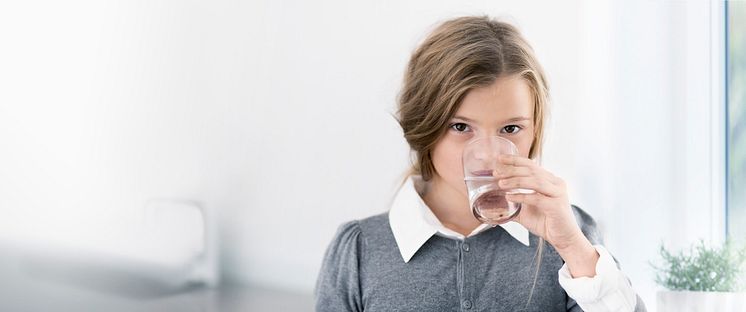
Bluewater marks world water day with a warning about tap water quality
Stockholm, Sweden, March 22, 2021 –Bluewater, a Swedish company leading the world in innovative clean tap water technology and eco-friendly hydration solutions, today used World Water Day to warn water quality declines around the planet have reached a point where millions of people are increasingly drinking potentially unsafe tap water laden with ‘forever chemicals’ and other human-made pollutants.
Bluewater cited a report published at the end of 2019 by the International Journal of Water Resources Development saying “signs of deteriorating water quality can be seen all over the world, in both developed and developing countries”.
Calling for clean drinking water for all, Bluewater blamed poor tap water quality on factors ranging from the climate crisis to industrial and agricultural pollution, water scarcity, mounting plastic waste, and declining investment in water management infrastructure.
“We all want clean water in our homes to drink and wash with. After all, our very lives depend upon hydrating sufficiently,” said Bluewater spokesperson Dave Noble. He said that as the world emerges from the Covid 19 pandemic, 2021 should be made the year of clean water and wellbeing, whether drinking water from a tap at home using a Bluewater purifier or from an eco-friendly Bluewater water bottle (photo below, credit TRYGG).
The damning scale of the water quality issue is spotlighted on a near-daily basis by new research and water quality issues making the news headlines.
In Sweden, in March 2021, several communities around Uppsala, a university city north of Stockholm, were advised to stop drinking tap water and instead fetch water from mobile tanks due to high levels of PAH hydrocarbon contaminants, which have been linked to cancer. It’s suspected that contaminants may have leaked into underground pipes supplying homes in the Uppsala municipality.
In the United States, in January 2020, the Washington-based environmental EWG watchdog group published a study showing drinking water contamination by ‘forever chemicals’ may be far worse than previously estimated. It said practically everyone was now exposed to ‘a toxic soup’ of PFAS chemicals used in products such as non-stick cooking pans and firefighting foam, with some linked to cancer, liver damage, obesity, and reduced immunity to disease.
In the United Kingdom a Birmingham University study from 2008 of almost 400,000 infants born in Taiwan concluded that tap water treated with chlorine may double the risk of severe heart and brain abnormalities in unborn babies.
Dave Noble noted that the United Nations this World Water Day has said 2.2 billion people -- almost one person in three of the global population -- continue to lack access to safely managed drinking water. However, the true global scale of tap water pollution is unknown.
“That so many lack access to a regular supply of safe drinking water is totally unacceptable in this day and age. Yet, perhaps even worse, is that just about all of us on Earth are daily imbibing water potentially containing health-threatening chemicals and microplastics,” he said.
“Bluewater is on a mission to help end the cradle-to-grave plastic bottle cycle. That’s why we offer alternatives to single-use plastic water bottles, from innovative water purifiers to drinking bottles made from plastics-free glass and stainless steel, that help people at work, home, and on the go to hydrate more healthily.”
For more information, please contact Dave Noble, Bluewater spokesperson, at david.noble@bluewatergroup.comor +44 7785 302 694.